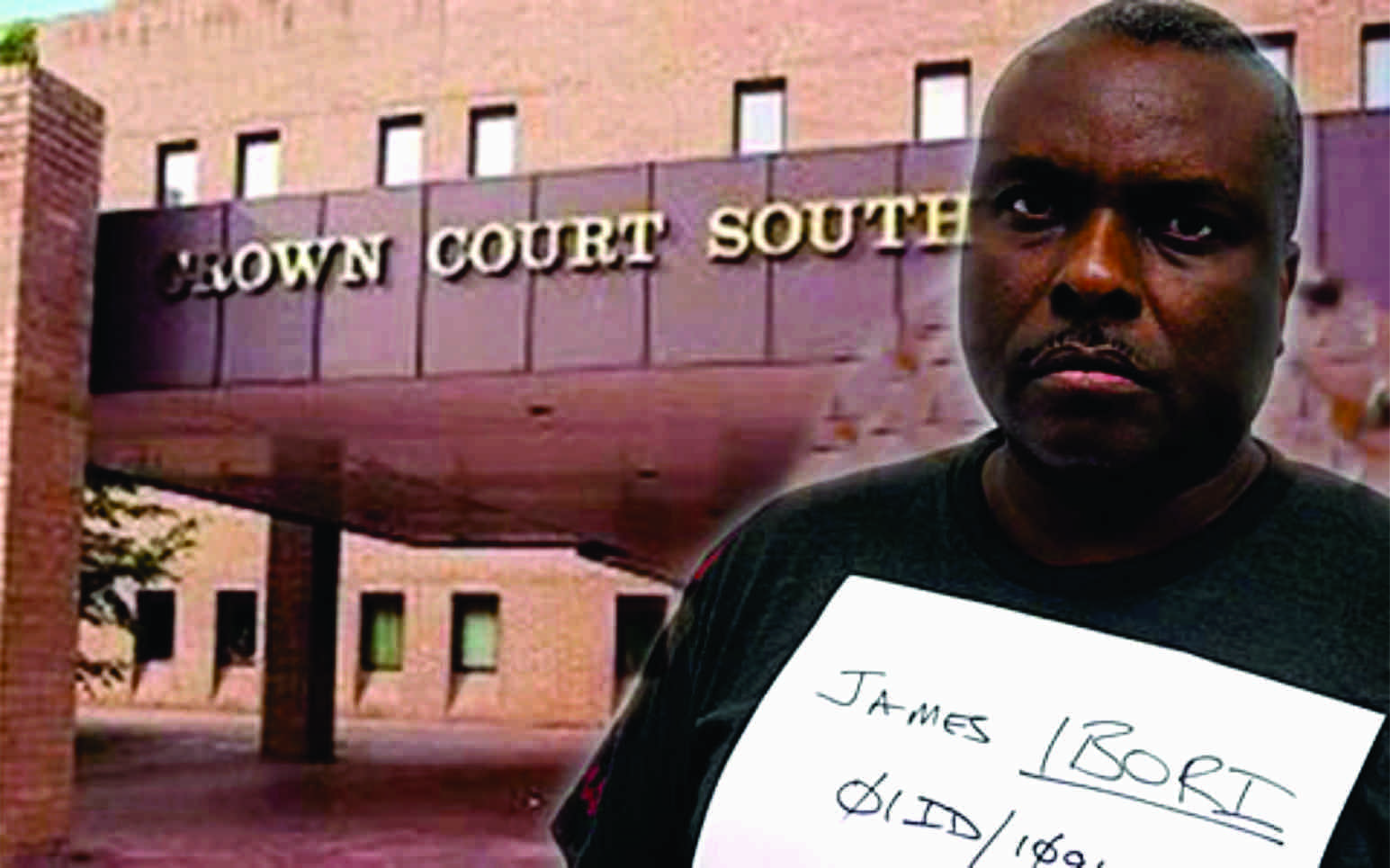Features
The shame of Ibori’s trials and incarceration
Published
8 years agoon
By
Olu Emmanuel
By Chris Akiri
IN April, 2012, Chief James Onanefe Ibori, former Governor of Nigeria’s Delta State, was sentenced to 13 years imprisonment by a Southwark Crown Court in London. While the trial lasted, two disparate groups of Nigerians besieged the Court to cheer, or jeer at, the man in his travails. In Nigeria, a sizeable crop of the people luxuriates in gloating over the misfortunes of others, particularly when those others are from the outer-group. The judiciary in Nigeria is a mere outward manifestation of a legal system in which the real judges are the men and women on the streets, in their offices or in their beer-parlour rendezvous. They rapturously and facilely pronounce judgment on accused persons before the normal courts do so.
In Nigeria, every woman is a lawyer and every man, a judge in his right, trained, as they are, in the Faculty of Law, Amebo’s Advanced Law School, Lagos. Having no nodding acquaintance with elementary law of libel, they are doctrinaire journalists without a doctrine. Whenever anybody is accused of corruption, a systemic social cancer and the bane of Nigeria’s socio-economic development, Nigerian men and women, including those that are hardly able to read a B from a bull’s foot, will rise up in insurrection, as it were, to pronounce such a person guilty as charged, and openly bedaub him “a thief”, with no thought about the legal consequences if that person is subsequently discharged and acquitted!
As Governor of Delta State and therefore head of a federating unit from 1999 to 2007, Chief James Ibori was easily the best Governor that State, indeed, Nigeria, had ever produced: he catered for individual needs and structurally transformed Delta State to look like one of those States in America. Today, about eight years after he left office, Delta State has become like a huge refugee camp, in terms of putrefied and putrefying infrastructure, not fit for the internally-displaced persons of the beleaguered north-east of Nigeria! That is why I feel a vicarious soreness of heart each time people mention Ibori’s name as a byword for corruption in Nigeria, in spite of all the glaring evidence to the contrary.
Ibori scaled over the 107-count charge against him in Nigeria, because the standard of proof in a criminal offence is beyond reasonable doubt; in civil matters, it is on the balance of probabilities. So the man was discharged and acquitted by the formal Court of Appeal. But the formal judiciary in Nigeria is irredeemably corrupt, they claim, and the informal judiciary, manned by the ordinary men and women on the street, came to the rescue. The latter judiciary has enough pieces of evidence to pillory the man. And it did!
In Law, there is the equitable doctrine of autre fois acquit, meaning that you cannot try any person for an offence for which he has been discharged and acquitted. So a brazen cluster of Nigerian saints, including the Commander-in-Chief of Corruption in Nigeria and some geriatric talkative in Delta State, hounded him into exile until a vengeful Jonathan’s Government, in cahoots with neocolonial Britain, put him in jail for 13 years in London, for MONEY LAUNDERING charges!
But what are the facts? The lead prosecutor, Sasha Wass, read out 14 charges, and Ibori was advised by his counsel, Mr. Nicholas Purnell, QC, to plead guilty to 10 thereof, even if the prosecution could not show “the irresistible inference of criminality” needed to prove the bare minimum of a charge of conspiracy to launder money. The Judge, Anthony Pitts, was, however, satisfied that the original, the predicate offences of fraud in Nigeria, where our courts are said to be too corrupt to try such cases, had been proved beyond reasonable doubt.
The charge sheet read:
“That in Ibori’s first term, he took money from inflated contracts (in Nigeria) for a sports stadium and a fleet of cars for the State Government;
“That he funelled the cash through Shell companies in the name of his sister, Christine Ibori Ibie, and his mistress Udoamaka Okonkwo, and bought property in London.”
The main offence, taking money from inflated contracts, shorn of the money laundering aspect, was committed in Nigeria, but both were tried in one of the de facto postcolonial capitals of Nigeria, London, in arrant disregard of the concept of jurisdiction, which, like possession, is nine-tenths of the Law! There are two main types of Jurisdiction: geographic and subject-matter. The one warns that you cannot try an accused person outside the geographic area where he allegedly committed the offence, such as when Ibori’s alleged offence was illegally transferred from Asaba/Benin to Kaduna for trial, or when election tribunals were transferred, for whatever reason, from Port Harcourt, Uyo and Jalingo ( the loci inquo), to Abuja, the political headquarters of Nigeria, whilst the other type of jurisdiction precludes a trial beyond the competence of a court, such as when a Magistrate’s Court tries a constitutional dispute between two States! It trite law, from a long line of Supreme Court cases, that to move the trial of a case from a court with competent jurisdiction to outside that jurisdiction is taboo.
Another allegation against Chief James Ibori in London was an attempt by him and his counsel, Bhadresh Gohil, allegedly introduced to him by the former Governor of Akwa Ibom State, Obong Victor Attah, to buy a private jet from a Canadian firm, Bombadier. That was only an attempt. Today, countless State Governors, outside the oil-producing areas, invidiously gallivant in private jets like shuttling gadabouts. And all that is taken for granted!
This brings me to a crucial question. From 1999 to 2007, during Ibori’s tenure of office, there were 36 Governors. Does any of those who gloat over Ibori’s travails ever consider why it was only those Governors from the oil-producing areasDSP Alamieyeseigha (now forced across the Styx by the Nigerian State, in collusion with Britain, in breach of the provisions of section 175 (1) of the 1999 Constitution (as amended), which empower the President to grant a pardon to any person), James Onanefe Ibori, Lucky Igbinedion and Peter Odili, who succeeded in putting a gag in the mouths of his ethnocentric tormentors (all Niger Deltans)– that stole money from their State treasuries? Consider the Governors of that period (1999-2007), one by one, and stop harping upon Ibori and from being ethnocentric.
Apart from Gen. Yakubu Gowon (rtd.), look at all other previous heads of state (from the in-group), who now wallow in wealth and in luxury, with audacity and impunity, and strutting about like swashbucklers and the proverbial gay lotharios. So why is Ibori the byword for corruption in Nigeria? Is it because he hails from a minority ethnic group, the Urhobo nation, the fourth most populous ethnic nationality in Nigeria, a group that revels in being trampled upon and elects to suffer in silence, in spite of huge natural and human resources? How can you fight corruption selectively and hope to achieve success? Whenever I hear anyone call Ibori in derision, I pout my lips in horror!
Now I can hear fake prayer warriors against corruption saying, ‘Chris Akiri is writing all this because he is Urhobo’, which I proudly am, anyway! I can say from the roof tops that Ibori’s touted theft is a mere flea bite on the kernel of the corruption, malfeasance, nonfeasance and misfeasance inflicted on Nigeria by former and serving Governors and heads of state, even those whose regions contribute zero percent to the Federation Account.
When Kwame Nkrumah (the Osagyefo), the late President of Ghana, was alive, he fervidly inveighed against colonialism and neocolonialism. He abominated a situation in which his nation, or any African nation, was yoked to the colonial horse of any Western nation, or, having attained nationhood, any African state should allow a former colonial master to continue to stand astride such African nation as though nothing had happened. Among such notable revolutionaries and nationalists were Ernesto “Che” Guevara, Amilcar Cabral, Nnamdi Azikiwe and Obafemi Awolowo, etc. They are no more! Today, shameless African states, including Nigeria, have tied their states to the apron strings of European and American countries, of their own volition.
I was, therefore, not surprised when neocolonialist Judge Anthony Pitts of the Crown Court in London queried, with temerity, the validity of section 182 (1) (e) of our Constitution, which allows someone tried and convicted of any crime more than ten years before the date of election to the office of Governor of a State to stand for election to the office of Governor of a State.
Ibori and his wife were said to have been convicted of the offence of larceny in London, early in1991. Under the provisions of the British Rehabilitation of Offenders Act, after the lapse of a period of five years, anybody convicted of an offence in a UK court is entitled to consider that his/her legal status has returned to be as if he had never been convicted. Judge Anthony Pitts, stunned and visibly shaken with exasperation, wondered why the Nigerian Constitution makes the conviction/return-to-emancipation period only ten years for an African! An unblushing negrophobe! I don’t blame him, with his aquiline nose and café au lait colour! The Nigerian Government and the servile people of Nigeria are to blame.
Now the big question and conclusion: can any one of the sanctimonious haters and traducers of Ibori, Alamieyeseigha, etc. of the Niger Delta, particularly those inveterate traducers in the South of Nigeria, imagine any British or American President and his advisers hounding their political adversaries into exile to be tried by African courts and incarcerated in African prisons, to the joy of Britons or Americans? How many British or American serving or ex-public officers, like Secretaries or ex-Governors of States, have been tried, let alone convicted, and sentenced to serve prison terms in Nigeria? Or there is no corruption in Britain and America? Why must we announce to the whole world, as the hallmark of good governance, that Nigerian leaders are the most corrupt in the world?
Gradually but inexorably, Nigeria has intentionally or inadvertently surrendered its hard won sovereignty to the suzerainty of foreign powers in a rabid bid to discredit its preceding leadership and its own judiciary. As long as Ibori remains in jail in London, Nigerians and their governments will continue to wear the toga of shame, disgrace, dishonour and embarrassment.
Chris Akiri, an Attorney in Lagos, sent in this from the US.
Trending

 Football6 days ago
Football6 days agoGuardiola advised to take further action against De Bruyne and Haaland after both players ‘abandoned’ crucial game

 Aviation7 days ago
Aviation7 days agoDubai international airport cancels flights as flood ravages runway, UAE

 Aviation1 week ago
Aviation1 week agoNCAA suspends three private jet operators for engaging in commercial flights

 Featured4 days ago
Featured4 days agoPolice reportedly detain Yahaya Bello’s ADC, other security details

 Comments and Issues6 days ago
Comments and Issues6 days agoNigeria’s Dropping Oil Production and the Return of Subsidy

 Education5 days ago
Education5 days agoEducation Commissioner monitors ongoing 2024 JAMB UTME in Oyo

 Business5 days ago
Business5 days agoMaida, university dons hail Ibietan’s book on cyber politics

 Education7 days ago
Education7 days agoOsun NSCDC solicits cooperation towards national assets protection

